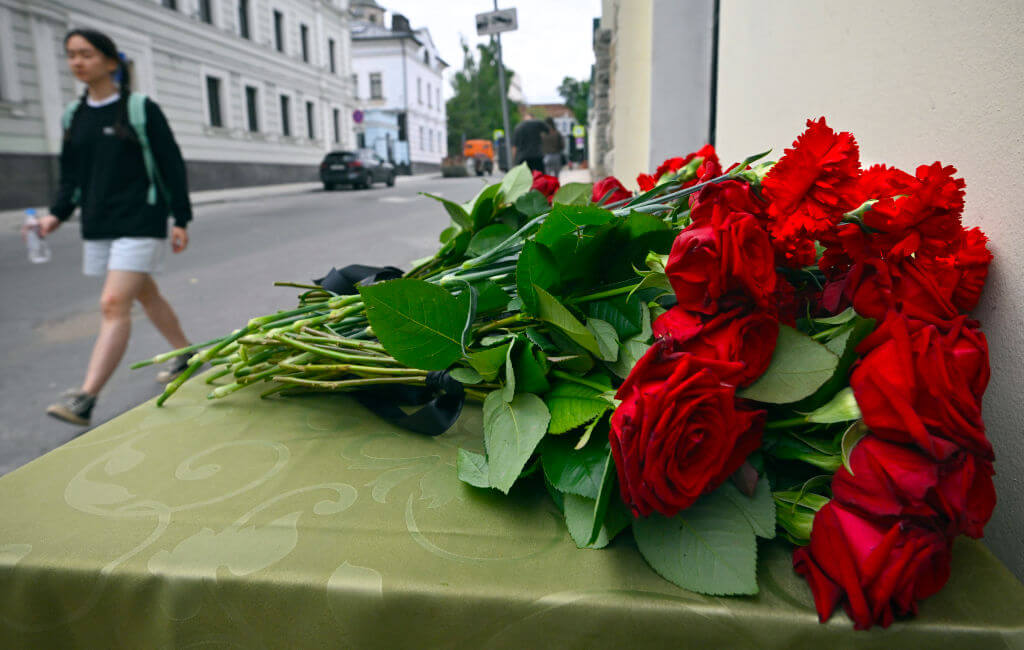Synagogues in Dagestan, Russia, targeted alongside churches in terror attack
The attack took place in the same region where a mob sought out passengers coming from Israel in 2023

A woman walks past flowers laying in front of the representative office of Dagestan in Moscow on June 24, following terrorist attacks on churches and synagogues. Photo by Getty Images
(JTA) — Two synagogues in the Dagestan region of Russia were attacked on Sunday amid a coordinated and deadly attack on houses of worship in two cities.
Gunmen attacked a synagogue in Makhachkala, while a 110-year-old synagogue in Derbent burned down during the attack. The region’s small Jewish community dates back to the sixth century; the synagogue was the only one that remained in Derbent, a city of about 125,000 located about 75 miles away from the regional capital of Makhachkala.
No one was reported to be injured at the synagogues, but a priest, several civilians and a number of police officers were reportedly killed during the attack.
The number and identity of the attackers was not immediately clear, and no group immediately claimed credit for the violence. Police detained a local chief of police amid reports that his sons had been involved and were continuing to look for “foreign-trained sleeping cells,” according to the Russian state news service TASS.
The attacks follow a deadly attack on a Moscow concert hall in March that Russia has attributed to Ukraine, with which it is at war, even after a branch of the Islamic terror group ISIS claimed responsibility.
Dagestan is a majority Muslim republic located in southern Russia, next to Georgia. In late October, hundreds of people stormed onto the tarmac at the airport in Makhachkala as a flight from Israel arrived, reportedly yelling antisemitic slogans and forcing officials to shut the airport down. Russian President Vladimir Putin, who did not immediately comment on the latest attacks, also claimed without evidence that Ukraine had staged the riot.
In a statement, Rabbi Alexander Boroda, president of the Federation of Jewish Communities in Russia, condemned the latest terrorism and said the Jewish community mourned the victims of the attack.
“We have to restore not only a quiet life, but also the synagogues in Makhachkala and Derbent,” where Torah scrolls were destroyed in the fire, Boroda said.
The Derbent synagogue, built in 1914 on behalf of the Mountain Jews of the Caucasus region, is also known as Kele-Numaz and was rededicated in 2010, following the exodus to Israel of most of the 30,000 Jews who had been living in Dagestan when the Soviet Union fell in 1989.
Even as details remained murky from Russia, which has been largely cut off from the West since invading Ukraine in 2022, some Jewish groups abroad denounced the attack on Sunday.
“An attack on the rights of individuals to practice their faiths freely and openly is an attack on humanity,” the World Jewish Congress said in a statement. “As we await more information on the motivations of the attackers, we are reminded of the danger posed by antisemitism and all religious-based violence.”














